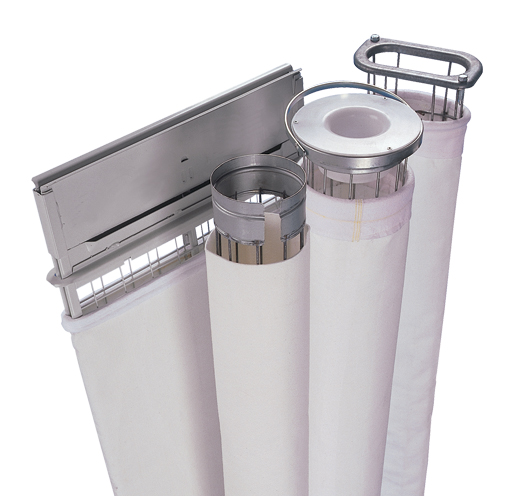Optimizing Dust Collection in the Food Industry
The type of food processing & where in the process dust is generated can affect the style of dust filtration needed to maintain a clean environment.
Complexities of Dust Collection in the Food Industry
Dust collection in the Food Industry can be a complicated and perplexing topic. Proper facility maintenance is necessary in all areas of food manufacturing to ensure hygiene standards are met because a high-profile food handling scare can shift industry thinking. This requires operations managers to keep up-to-date on all the current and proposed standards. And to make it even harder, there may not be a single overall ruling body to dictate correct requirements for each food manufacturing line.

Considerations in Choosing a Dust Collector
Dust collectors are critical to maintaining a clean processing environment. Yet, dust collectors may be an afterthought to other manufacturing equipment needs. Dust collection equipment applied in the Food Industry should be chosen on the specific requirements of each particular manufacturing process. The type of product being made and where in the process the dust is generated can significantly affect the style of dust filtration equipment needed.
Getting Advice
Who do companies go to obtain solutions and optimize necessary dust collection equipment? Many companies have developed in-house experts or a corporate Environmental Health and Safety group, while some use outside consultants or other external sources. Either approach can be effective, but remember to also involve the dust collection equipment manufacturer. Working with the dust collection manufacturer can make overall equipment selection easier. Those experts have extensive knowledge on how to effectively collect and filter dust and can work with your own processing experts to determine appropriate solutions for each application.
Dust Characteristics
To determine the correct dust collection solution requires drilling down through the process and asking the right kinds of questions. Is the dust wet, fibrous, abrasive, explosive, or sticky? Can it be described by other challenging characteristics?
Dust Creation & Final Dispensation
Will the dust be returned to the process, or will it become a waste stream? What process will produce the dust? Mixing, screening, bag dumps, and conveying all generate dust, but they can require different types of collection methods to be effective.
Know Your Regulations
What standards or regulations exist for the dust that will need to be met?
Inspecting Your Processes
So what should you do? First, determine where you require dust collection, and check the performance efficiency of your existing dust collectors. Are there dusty areas where dust collection is inadequate? Are there areas showing a build-up of material on equipment that create potentially hazardous workplace conditions? Can existing dust collectors be modified to achieve improvements or are new dust collectors needed to control the environment? Space, time, and energy savings can often be achieved when you select the right combination of options for dust collection.
Space, Time & Cost Considerations
How can you save space, time and energy? There are multiple ways, but here are a few of the more common methods:
- The newest configurations of dust collectors have a considerably smaller footprint. They also require fewer filters, allowing faster filter change outs, and reduced maintenance times.
- Collectors with fans and Variable Frequency Drive controllers (VFDs) allow airflow to be adjusted automatically as the filter conditions change, saving money by moving no more air than required.
- Newer and specialized filter media in cartridges, bags, or panel configurations improves both filter life and extends the service interval time between change outs.
Options Worth Exploring
Food manufacturers may feel more comfortable with traditional collector styles but should consider the latest technologies that take dust collection to a whole new level of performance. New filter medias include nanofibers, PTFEs, and spunbonds. New configurations of filters or bags offer a wide variety of choices over standard offerings. Choosing a filter media in an updated configuration in the latest dust collector design could provide the right combination to save you time, and energy, while meeting your dust collection needs.
Summary
Does your existing dust collection equipment maintain the hygiene of your facility today, and can it do so into the future? If not, then it may be time you looked at some of the newer dust collection equipment, that incorporates the latest technologies so you can take advantage of the operational savings those technologies can offer. Even if your current dust collectors are doing what you ask, it’s still likely worth your time to consider upgrading filter media so you can enjoy some of the potential savings while using your current equipment. Contact your local Donaldson Torit representative to discuss the dust collection needs of your facility. He can offer you the advantages of his filtration expertise in your process.

AST Canada has been helping clients find solutions for their unique Dust, Mist & Fume Collection needs for more than 40 years.
We can help you too.
